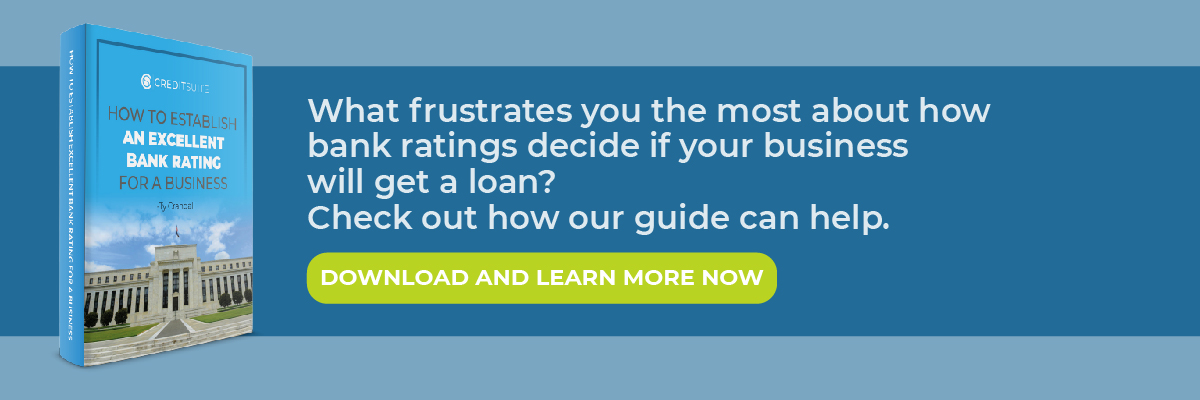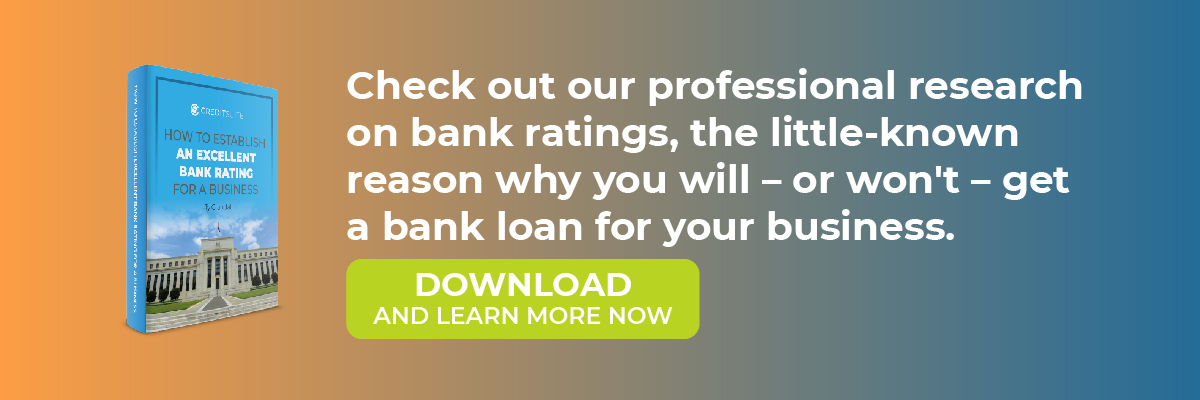The Key to Getting Small Business Loans is to Be Smart and Prepared
It is inevitable in the life of any small business that the topic of small business loans is going to come up. No one loves debt, but funding is going to be necessary, and loans are the most common way to get that funding. For many business owners however, it can be overwhelming. Our 4 fabulous tips for how to getting small business loans may help.
Getting Small Business Loans By Going Shopping
Who doesn’t love a great deal? If you are shopping for clothing you have several options for where to go. Whether you hit the thrift store, a high-end boutique, or something in-between will depend on a number of factors. What type of clothing are you looking for? Where do you need to wear it? How long does it need to hold up? How much do you have to spend?
The same is true when shopping around for the best business loans. Where you go and what you get will depend on your particular business situation. You have to find the small business loans with the best rates and terms that you actually qualify for. When you start shopping, be sure to check out all of the following.
Large Banks
These typically offer the loans with the best rates and terms, but they are the hardest to qualify for. This is because large banks have very little wiggle room. They want to see strong financials, strong credit scores, and an established business.
Getting Small Business Loans at Community Banks
These are smaller, local institutions. Their terms and interest rates are usually competitive, and they are sometimes more willing to give a little on credit score if other mitigating factors exists.
Credit Unions
The first thing about credit unions is, you have to be a member to get a loan with them. However, they tend to have the best options for rates, if you are a member and meet the requirements.
Online Lenders
If you struggle with finding a small business loan due to credit score or time, online lenders may be your saving grace. They are fast, and though interest rates are typically higher, they are more flexible with credit scores as a general rule. Some of our top picks are included below.
Fundbox
With Fundbox , you get an online lender that offers an automated process that is super-fast. Originally, they only had invoice financing, but now they offer a line of credit service as well. Repayments are automatic on a weekly basis, so be sure you have enough funds in your account to cover your payment each week.
Loan amounts come as low as $100 and as high as up to $100,000. There are no revenue or time in business requirements, but your accounting or invoice software must be compatible and must be in use for at least 3 months. There is also no specific credit score requirement. You simply have to be an established business with regular monthly revenue.
OnDeck
Obtaining financing from OnDeck is quick and easy. First, you apply online. You will receive the decision once application processing is complete. If you get approval, your loan funds will go directly to your bank account. The minimum loan amount is $5,000 and the maximum is $500,000.
They do require a personal credit score of 500 or more, and you must be in business for at least one year. Annual revenue must be at or exceed $100,000. In addition, there can be no bankruptcy on file in the past 2 years and no unresolved liens or judgements.
Kabbage
Kabbage is a well known competitor in the world of online lenders. They offer a small business line of credit that can help accomplish your business goals quickly. The minimum loan amount is $500 and the maximum is $250,000. They require at least one year in business and $50,000 or more in annual revenue, or $4,200 or more in monthly revenue, over the last 3 months.
They are great if you need cash quickly. Also, their non-traditional approach puts less weight on your credit score, so they may work better for borrowers struggling in that area.
Types of Small Business Loans
Remember you will also have choices when it comes to the type of small business loan you choose. As you are shopping around, consider that some lenders work with the Small Business Administration. If you qualify, an SBA program may be just what you need. Find out more about those programs here.
There will also be options for secured and unsecured loans. If you have collateral, a secured loan will usually have better rates and terms.
Nail the Business Plan for Getting Small Business Loans
Any traditional lender is going to need to see a business plan as part of the loan application process. Honestly, it is best to hire a professional business plan writer if possible. A professional business plan writer can work with you to gather all the necessary information and compile it into the traditional, acceptable format.
If you cannot hire a business plan writer however, there are a number of options that can help you. The Small Business Administration offers a template, and your local small business development center can help as well.
For a business plan to be taken seriously by a lender, it needs to include the following:
Opening
- An Executive Summary– This is a complete summary of the business idea.
- Description– The description goes into further detail than the summary, describing the business. What type of business is it? What product or service will it offer? This is where you work to get others excited about your business. Note that this is important even if your business is already operating, you just need to write in present, rather than future tense.
- Strategies-Layout your plan for getting started. Do you have a marketing plan, area in mind for location, or idea of how many employees you will start with? What is your ramp up plan? Again, already operating businesses will state the current operating strategy.
Market Research
- Market Analysis– This actually includes two parts. All that market research you did goes here:
o Analysis of audience: What need will or does your business fill, and for who? Are you a child care facility filling a need for affordable child care for working moms? Are you a diner offering a quick lunch option for those working downtown? How will your business fill the need? All of that information goes in this section.
o Competitive Analysis: Is there already a business working to fill this need? Is there room for more? How do you plan to compete with them?
If you are not a new business, this will be a market analysis that supports your need for funding, as well as how you plan to use the funds.
The Plan
- Plan for Design and Development: How is all of this going to play out, from start to finish? What steps are you going to take? This is more detailed than your strategies section.
- Plan for Operation and Management– Who will own or does own the business and who will run or currently runs it from day to day. This could be as simple as stating that you are the sole owner and operator, or as complicated as laying out a complete partnership plan or board or directors’ format. It just depends on how your business works.
Financials
- Financial Information– This section includes current financials, projections, and a budget plan for the loan funds you are applying for. Lenders need to see that you know how to handle the funds you get, and that you have a plan for paying them back.
Hunt and Gather
When you apply for small business loans, there is certain information that is pretty much necessary regardless of the type of loan or lender. This information is required in addition to a business plan. For example, you will need:
- Insurance documents
- Business licenses
- Personal income tax returns, usually for the previous 3 years
- Other personal financial information not included on the tax returns.
Go ahead and hunt these down, put hands on them, and be prepared with copies to present to lenders if they ask for them. They almost certainly will.
It Takes Two Baby
Large, traditional lenders are going to expect a good personal credit score. This is true despite the fact that you may have business credit. Smaller lenders, and especially online lenders, may be more willing to give a little on the personal credit score if your business credit is solid. They may also be willing to take into consideration things such as annual revenue and length of time in business if credit isn’t as good as they normally like to see.
What this means for you, is that when you go to get small business loans, you need to be sure your personal credit and your business credit are both as strong as possible. It takes two.
What to Do If your Personal Credit isn’t So Great
If your personal credit score isn’t so hot, there are a few things you can do to beef it up. The first, of course, is to make your payments consistently only time. In addition, consider how much of your credit you are using versus what you have available to use. This is your debt-to-credit ratio, and it affects your credit score negatively if it is too high.
You can lower it by opening new accounts, but that also lowers your average age of accounts, which will have a negative effect on your score as well. So, you will need to do some research to see if the benefit will outweigh the cost of opening a new account to decrease your debt-to-credit ratio.
It is also important to get a free copy of your personal credit report each year and look for mistakes. If you find something that should not be there, report it to the credit reporting agency in writing. You will need to send in supporting documents also, but be sure to send copies and not originals.
What about Business Credit?
Business credit can help you with getting small business loans if it is strong enough. Many lenders will still want to see your personal credit score, but if it isn’t quite up to par, solid business credit can make all the difference. Some non-traditional lenders will even accept business credit in lieu of personal credit.
How do you get business credit? You have to build it, intentionally. It doesn’t just happen on its own like personal credit does. If you do not intentionally establish and build separate business credit, then all of your business transactions are simply reported on your personal credit report.
You must establish your business as an entity separate from yourself and start from ground zero to build a business credit report. It takes a while, so if you haven’t done so yet, now is the time. The first step is to visit irs.gov and formally incorporate your business. You will also need an EIN, which is like an SSN but for your business.
This can be done for free on the IRS website as well. Find out more about how to establish and build business credit here.
Getting Small Business Loans: Be Smart and Be Prepared
The key to finding small business loans is to be smart and be prepared. Don’t just take the first offer you find. Look around and find the best rates and terms possible. Check out different types of lenders and various loan options. Then, get your business plan and other information together so that the process runs as smoothly as possible.
Remember than some lenders and loan programs may have additional requirements. This list of how to get small business loans doesn’t include all the various hoops some lenders may have you jump through. It will, however, give you a great start to finding the funding you need to help your business grow.




